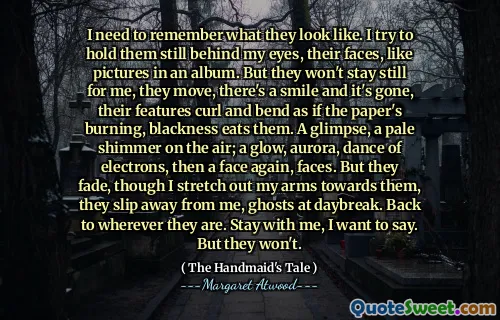I want to see what can be seen, of him, take him in, memorize him, save him up so I can live on the image, later: the lines of his body, the texture of his flesh, the glisten of sweat on his pelt, his long sardonic unrevealing face. I ought to have done that with Luke, paid more attention, to the details, the moles and scares, the singular creases; I didn't and he's fading. Day by day, night by night he recedes, and I become more faithless.
The passage reflects a deep yearning for connection and preservation of memory. The narrator expresses a desire to fully appreciate and remember a person, capturing the nuances of their physical presence—the contours of their body, the texture of their skin, and even the subtleties of their expression. This longing reveals how crucial these details are for holding onto someone's essence as time blurs their image.
Furthermore, the narrator regrets not doing the same for Luke, lamenting how he is fading from memory. As time passes, the narrator feels increasingly detached and faithless, signifying a struggle between the desire to remember and the inevitability of loss. This sentiment speaks to the broader themes of memory and the passage of time in human relationships.






